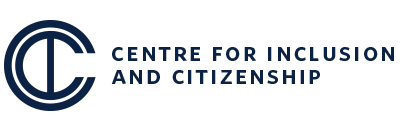The Canadian Institute for Inclusion and Citizenship, in partnership with Vela Canada and Community Living British Columbia is pleased to share the results of our two-year qualitative research study on the impacts of Microboards on social capital of people with intellectual and developmental disabilities (IDD). We are pleased to share with you our infographic, plain language executive summary, full report, and a short animated video describing our work and findings.
Thank you to all the Vela Canada Microboard members who participated in this study.
Microboards-Social-Capital-and-Quality-of-Life-Full-Report-CIIC-2021
Microboards, Social Capital and Quality of Life – Plain Language Executive Summary, CIIC 2021
Microboards, Social Capital and Quality of Life – Infographic, CIIC 2021
Research tells us that the more social capital (or connections) that a person has in their network, the greater quality of life they will have. For this project, we wanted to know how Microboards helped to connect people with their communities in ways that helped to increase social capital and quality of life.
We interviewed people involved in Microboards across the province of British Columbia to hear and learn from their experiences. We learned that Microboards are autonomous, person-centered, empowering, and interconnected; and that because of these four characteristics Microboards act as a “vehicle” for increasing social capital and quality of life.
One participant captured the experience of many when stating “Having the Microboard just makes it really flexible for somebody with such high complex needs to not just exist, but to truly live. And without the Microboard, [he] wouldn’t have the unique, rich life that he does have”
More research is needed to explore the long-term benefits of Microboards, including their potential to reduce the need for other supports or interventions. More research is also needed to explore and compare different people’s experiences to get a better sense of how other factors may impact the effectiveness of Microboards in being autonomous, person-centered, empowering, and interconnected.
This project was conducted as a university-community partnership and we are grateful to all the participants who shared their stories, to the organizational and funding partners Vela Canada and Community Living BC, and to Mitacs Accelerate Program for funding support.
[youtube width=”600″ height=”300″]https://youtu.be/0-jJgrpczoE[/youtube]
Clarifications:
- In the above video it states that the concept of MBs was developed by Vela Canada. In fact, the concept of MB was first developed by David and Faye Wetherow in Manitoba.
- The full research report states “MBs were first developed in British Columbia in 1990 to provide information to friends and family members of PWD who wished to move away from the traditional block funding model towards a network based individualized funding approach (Vela Canada, n.d.). To clarify, the concept of MB was first developed by David and Faye Wetherow in Manitoba.
For more information about this or other projects please contact Dr. Tim Stainton at tim.stainton@ubc.ca.
